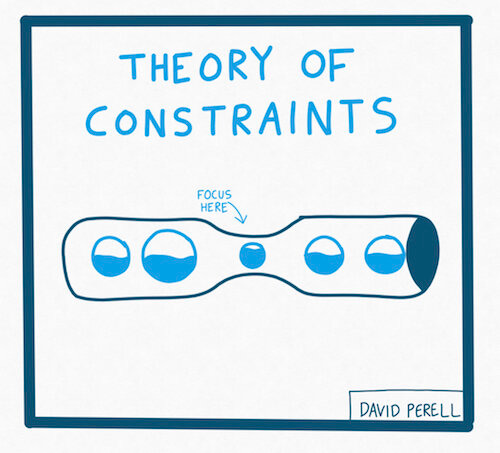Är du sugen på att utmana din hjärna och världsbild? Författaren David Perell har ett nyhetsbrev som heter ”Monday Musings” där han listar saker han har lärt sig den senaste veckan, och på fredagar skickar han ut ”Friday Finds” där han tipsar om intellektuella principer och fenomen.
Bland det bästa som han har publicerat det senaste året är listan ”50 Ideas That Changed My Life” som – faktiskt – funkar som steroider för hjärnan. Eller som han själv skriver:
”These are my guiding principles and the light of my intellectual life. All of them will help you think better, and I hope they inspire curiosity.”
Själv har jag plockat ut de teorier som är nya för mig och försöker nu applicera dem både privat och på jobbet för att se om de funkar i realiteten. Förhoppningsvis gör de det. Jag vill inte cementeras.
Här är några av mina favoriter:
Theory of Constraints: A system is only as strong as its weakest point. Focus on the bottleneck. Counterintuitively, if you break down the entire system and optimize each component individually, you’ll lower the effectiveness of the system. Optimize the entire system instead.
Mimetic Theory of Conflict: People who are similar are more likely to fight than people who are different. That’s why Civil Wars and family feuds create the worst conflicts. The closer two people are and the more equality between them, the greater the potential for conflict.
Talent vs. Genius: Society is good at training talent but terrible at cultivating genius. Talented people are good at hitting targets others can’t hit, but geniuses find targets others can’t see. They are opposite modes of excellence. Talent is predictable, genius is unpredictable.
Competition is for Losers: Avoid competition. Stop copying what everybody else is doing. If you work at a for-profit company, work on problems that would not otherwise be solved. If you’re at a non-profit, fix unpopular problems. Life is easier when you don’t compete.
Personal Monopoly: Corporations reward conformity, but the Internet rewards people who are unique. If you work in a creative field, strive to be the only person who does what you do. Find your own style, then run with it. Create intellectual real estate for yourself.




